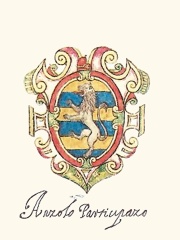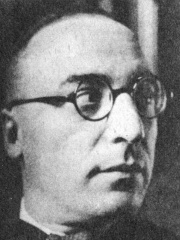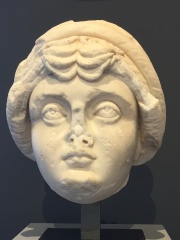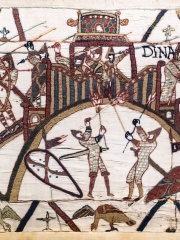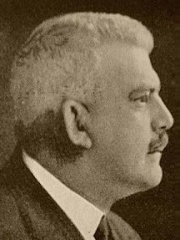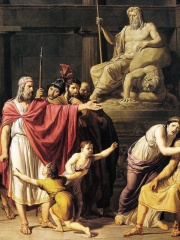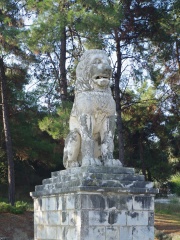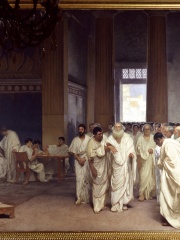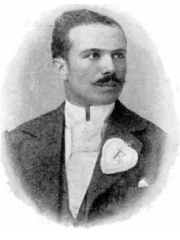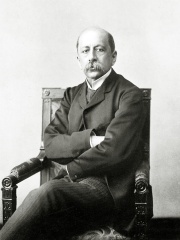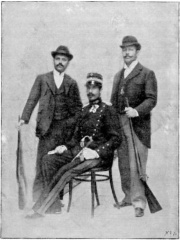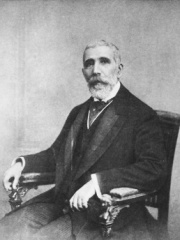POLITICIAN
Thrasymedes

 Thrasymedes
Thrasymedes
In Greek mythology, Thrasymedes (; Ancient Greek: Θρασυμήδης means 'bold of thought') was a prince of Pylos and a participant in the Trojan War. Read more on Wikipedia
His biography is available in 16 different languages on Wikipedia. Thrasymedes is the 11,547th most popular politician (up from 14,173rd in 2024), the 578th most popular biography from Greece (up from 723rd in 2019) and the 245th most popular Greek Politician.
Memorability Metrics
Page views of Thrasymedes by language
Among POLITICIANS
Among politicians, Thrasymedes ranks 11,547 out of 19,576. Before him are William Tubman, Wee Kim Wee, Giovanni I Participazio, Edgar Jung, Yi Gwang-sik, and Ida Saxton McKinley. After him are Philipp von Boeselager, Czesław Kiszczak, Burnaburiash I, Eutropia, Richard Huelsenbeck, and Conan II, Duke of Brittany.
Most Popular Politicians in Wikipedia
Go to all RankingsWilliam Tubman
1895 - 1971
HPI: 59.79
Rank: 11,547
Wee Kim Wee
1915 - 2005
HPI: 59.79
Rank: 11,548
Giovanni I Participazio
750 - 836
HPI: 59.79
Rank: 11,549
Edgar Jung
1894 - 1934
HPI: 59.79
Rank: 11,550
Yi Gwang-sik
1493 - 1563
HPI: 59.78
Rank: 11,551
Ida Saxton McKinley
1847 - 1907
HPI: 59.78
Rank: 11,552
Thrasymedes
HPI: 59.78
Rank: 11,553
Philipp von Boeselager
1917 - 2008
HPI: 59.78
Rank: 11,554
Czesław Kiszczak
1925 - 2015
HPI: 59.78
Rank: 11,555
Burnaburiash I
1600 BC - 1600 BC
HPI: 59.78
Rank: 11,556
Eutropia
HPI: 59.78
Rank: 11,557
Richard Huelsenbeck
1892 - 1974
HPI: 59.78
Rank: 11,558
Conan II, Duke of Brittany
1030 - 1066
HPI: 59.78
Rank: 11,559
In Greece
Among people born in Greece, Thrasymedes ranks 578 out of 1,024. Before him are Konstantinos Demertzis (1876), Oenopides (-490), Philostratus of Lemnos (200), Cleombrotus II (-250), Laomedon of Mytilene (-400), and Cineas (-400). After him are Ioannis Mitropoulos (1874), Geminus (null), Agesipolis II (-400), Charilaos Trikoupis (1832), Louis Dumont (1911), and Marinella (1938).
Others born in Greece
Go to all RankingsKonstantinos Demertzis
POLITICIAN
1876 - 1936
HPI: 59.85
Rank: 572
Oenopides
ASTRONOMER
490 BC - 420 BC
HPI: 59.84
Rank: 573
Philostratus of Lemnos
WRITER
200 - 230
HPI: 59.82
Rank: 574
Cleombrotus II
POLITICIAN
250 BC - 300 BC
HPI: 59.82
Rank: 575
Laomedon of Mytilene
MILITARY PERSONNEL
400 BC - 360 BC
HPI: 59.81
Rank: 576
Cineas
PHILOSOPHER
400 BC - 300 BC
HPI: 59.80
Rank: 577
Thrasymedes
POLITICIAN
HPI: 59.78
Rank: 578
Ioannis Mitropoulos
GYMNAST
1874 - 2000
HPI: 59.77
Rank: 579
Geminus
MATHEMATICIAN
HPI: 59.75
Rank: 580
Agesipolis II
POLITICIAN
400 BC - 370 BC
HPI: 59.75
Rank: 581
Charilaos Trikoupis
POLITICIAN
1832 - 1896
HPI: 59.75
Rank: 582
Louis Dumont
ANTHROPOLOGIST
1911 - 1998
HPI: 59.73
Rank: 583
Marinella
SINGER
1938 - Present
HPI: 59.72
Rank: 584
Among POLITICIANS In Greece
Among politicians born in Greece, Thrasymedes ranks 245. Before him are Sofoklis Venizelos (1894), Pantelis Karasevdas (1876), Hüseyin Hilmi Pasha (1855), Katherine Karađorđević (1943), Konstantinos Demertzis (1876), and Cleombrotus II (-250). After him are Agesipolis II (-400), Charilaos Trikoupis (1832), Machanidas (-254), Eudamidas III (-300), Philinna (-400), and Theagenes of Megara (-700).
Sofoklis Venizelos
1894 - 1964
HPI: 59.93
Rank: 239
Pantelis Karasevdas
1876 - 1946
HPI: 59.91
Rank: 240
Hüseyin Hilmi Pasha
1855 - 1922
HPI: 59.88
Rank: 241
Katherine Karađorđević
1943 - Present
HPI: 59.86
Rank: 242
Konstantinos Demertzis
1876 - 1936
HPI: 59.85
Rank: 243
Cleombrotus II
250 BC - 300 BC
HPI: 59.82
Rank: 244
Thrasymedes
HPI: 59.78
Rank: 245
Agesipolis II
400 BC - 370 BC
HPI: 59.75
Rank: 246
Charilaos Trikoupis
1832 - 1896
HPI: 59.75
Rank: 247
Machanidas
254 BC - 207 BC
HPI: 59.71
Rank: 248
Eudamidas III
300 BC - 300 BC
HPI: 59.63
Rank: 249
Philinna
400 BC - 400 BC
HPI: 59.55
Rank: 250
Theagenes of Megara
700 BC - 600 BC
HPI: 59.51
Rank: 251


